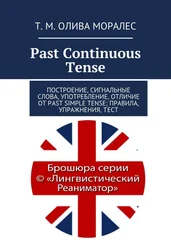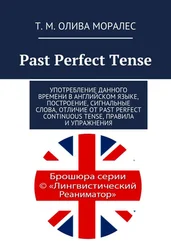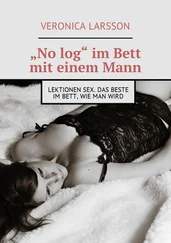Fjällborg was standing over the cooker wearing one of Maj-Lis’s aprons Martinsson had not seen before. It had blue and white stripes with frills round the bottom and the armholes.
He was heating up some smoked pike in a cast-iron pan. One of Maj-Lis’s embroidered pot-holders was hanging from the handle. Almond potatoes were boiling in an aluminium saucepan.
“I need to make a phone call,” Martinsson said. “Is that O.K.?”
“Ten minutes,” Fjällborg said. “Then we’ll eat.”
Martinsson dialled Anna-Maria Mella’s number. Mella answered immediately. A child could be heard crying in the background.
“Sorry,” Martinsson said. “Is this a bad time?”
“No, not at all,” Mella said with a sigh. “It’s Gustav. I locked myself into the loo, hoping to read the latest issue of Luxury Living in peace and quiet. Now he’s rattling the door handle and yelling hysterically. Hang on a minute.”
“Robert!” she bellowed. “Can you see to your son!”
Martinsson could hear a high-pitched male voice urging: “Gustav, Gustav, come to Daddy!”
“Come on, it’s obvious he’s not going to… Pick him up and get him away from the door!” Mella yelled. “Before I cut my throat!”
After a while Martinsson could hear that the screaming brat was being carried away from the bathroom door.
“That’s better,” Mella said. “Now we can talk.”
Martinsson summed up what she had heard from Johannes Svarvare about the aeroplane, and how he felt threatened by the Krekula brothers.
“I think you were right from the start,” Martinsson said. “It’s the brothers.”
Mella hummed in agreement to show that she was listening.
“I was at the archives this afternoon,” Martinsson said. “To dig out a bit of information about the haulage business.”
“And?”
“I found a register of haulage contractors in Kiruna municipality. You know the kind of thing – how many vehicles were owned by the firm and how many drivers they employed. In 1940 the Krekula Haulage Contractors had two lorries, by 1942 they had four, by 1943 eight and by 1944 eleven.”
“Really? Wow!”
“Yes, their business expanded impressively during those years. By nearly 500 per cent. And they acquired five refrigerated vans during the same period. When I compared them with other haulage companies, none of them expanded anywhere near as much.”
“Really?”
“Isak Krekula was on very good terms with the German army. There’s nothing odd about that – lots of firms were. In Luleå, for instance, the Germans had enormous depots for weapons and provisions. Transport was needed to move all the stuff to the Eastern front. I found a copy of a contract between the German army and Swedish Road Freight Centre Ltd. German soldiers were freezing to death in Finnish Lapland during the winter of 1941-2, and the German military attaché in Sweden ordered wooden huts from Swedish manufacturers. And so of course they also needed contracts with transport companies to carry those huts to the Eastern front. That’s what the S.R.F.C. contract was all about. So that winter there was nonstop shuttle traffic between the north of Sweden and the Eastern front. Isak Krekula’s haulage firm was one of the signatories to the contract between the S.R.F.C. and the German army. The contract was approved by the Foreign Ministry and the Swedish government.”
“I see,” Mella said, trying to resist the temptation to read an article about storage in her magazine.
“Once all the huts had been transported, deliveries continued to be made to the German front line. Including weapons, although there was nothing about that in the S.R.F.C. contract. And what’s more,” Martinsson continued, “I found a letter from Oberleutnant Walther Zindel, an army officer stationed in Luleå and in charge of the German depots in the region, to Martin Waldenström, the managing director of L.K.A.B. In it Zindel asks for Isak Krekula to be released from his contract with the Kiruna mine concerning four lorries for transporting iron ore, so that they could be used by the German army in Finnish Lapland.”
“Excuse me for being a bit slow on the uptake…” Mella began.
“You’re not slow on the uptake. All this doesn’t necessarily mean a thing. But it’s set me thinking. How come that Isak Krekula’s firm could grow so much more quickly than any of his competitors? A haulage firm was a lucrative business during the war. Obviously, everyone involved wanted to invest and expand. Where did Isak Krekula get all the money that enabled him to invest so much more than the others? It’s just not possible for him to have earned so much from his haulage business alone – I mean, if that were the case, at least one or two of his competitors would have been able to expand at a similar rate. And my neighbour Sivving says that the Krekulas were crofters as far back as anybody can remember, so there’s no money in the family.”
“Are you suggesting he might have been doing something illegal?”
“Perhaps. He must have got the money from somewhere. And you have to ask where. And I wonder why Oberleutnant Zindel asked the managing director of the mine to release Krekula from his three-year contract. Why Krekula? There were other hauliers who had contracts with L.K.A.B.”
“So?”
“I don’t know,” Martinsson said. “I don’t even know how to go about discovering what kind of a customer Isak Krekula was, or finding out about his dealings with Walther Zindel. In any case, it wouldn’t be of any help to us. Even if we discovered that he was involved in dirty business with the Germans, that would have no bearing at all on whether Tore and Hjalmar Krekula had anything to do with the deaths of Wilma Persson and Simon Kyrö.”
“Always assuming that Simon Kyrö is dead in fact,” Mella said mechanically.
“Of course he’s dead,” Martinsson said impatiently. “We’ll find him as soon as the ice on Vittangijärvi thaws.”
“Hmm, I’ve been trying to keep an open mind. Might he have killed Wilma himself, for instance?”
“And then killed Hjörleifur Arnarson? Hardly, don’t you think? Anyway, I reckon we should follow up on this line of investigation now – we don’t have unlimited resources.”
“We should probably just wait to see what develops,” Mella said. “Hope that the forensic examination of Hjörleifur’s body and his house, and the clothes Hjalmar and Tore Krekula were wearing, produce interesting results. And hope that we find the door and Simon Kyrö’s body when the thaw comes, and that there are finger-prints on it, or something of the sort.”
Clearing his throat, Fjällborg gave Martinsson a withering look.
“I’ve got to go,” Martinsson said. “I’ll see you at the meeting tomorrow.”
“Johannes Svarvare told me that Isak Krekula had a heart attack just over a week before Wilma and Simon went missing,” Mella said. “And when he said that, I had the impression that he wanted to say more, but was holding back for some reason.”
“He’s scared of them,” Martinsson said.
“I can’t help wondering if he had a heart attack because he’d heard that they were going to go diving to look for the aeroplane. There’s something about that bloody plane. It’s a bugger that the ice is melting, and that it’s not possible to go diving there right now. We’ll have to wait. I hate waiting.”
“I hate waiting too.”
“So do I!” Fjällborg said, slamming the potato stew down on the table. “I hate waiting for food to get cold.”
Mella laughed.
“What are you having to eat this evening?”
“Smoked pike.”
“Smoked pike? I’ve never tried that.”
“It’s good! What are you having?”
Читать дальше












